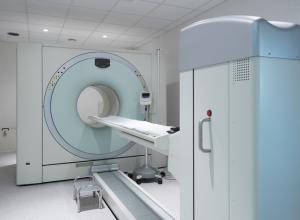Dr. David Samadi, NYC Urologist, Discusses An Innovative and Improved Technology for Identifying Metastatic and Recurrent Prostate Cancer
— Dr. David Samadi
NEW YORK CITY, NY, UNITED STATES, May 23, 2024 /EINPresswire.com/ — Advancements in medical imaging technology have revolutionized the diagnosis and management of prostate cancer, with the emergence of PSMA PET-CT standing out as a crucial tool in assessing the spread of the disease beyond the confines of the prostate gland. This innovative technique, utilizing Gallium-based PET imaging drugs approved by the FDA in December 2020, has significantly enhanced the ability to locate prostate cancer lesions beyond the pelvic area accurately.
Dr. David Samadi, Director of Men’s Health and Oncology at St. Francis Hospital in Roslyn, New York, and author of The Ultimate MANual, emphasizes the significance of PSMA PET-CT for high-risk patients. He explains, “While most men diagnosed with prostate cancer have localized disease, a subset faces a higher risk of metastasis or situations in which the cancer has spread. This technology is a game-changer, aiding in detecting potential metastases and pinpointing their precise locations. Men with aggressive prostate cancer or a very high prostate specific antigen (PSA) number, will benefit from this tool the most. It’s helpful to me in getting an accurate stage of the cancer and whether it is still localized within the prostate gland or has spread beyond the pelvic area.”
What is a PSMA PET CT scan?
PSMA PET-CT? PSMA is short for prostate-specific membrane antigen, is a protein predominantly found in prostate cancer cells. PET (positron emission tomography) is a nuclear imaging test employing a radioactive tracer to scan for cancerous activity. PSMA PET-CT combines PET with CT (computed tomography), comprehensively visualizing the affected areas.
Traditionally, conventional imaging methods such as CT scans, MRI, and bone scans have been used to detect metastatic prostate cancer. However, these techniques have limitations, often missing small tumors. Dr. Samadi highlights the superiority of PSMA PET-CT: “This technology can identify cancer that is frequently overlooked by standard imaging techniques.”
What happens during a PSMA PET-CT scan?
During a PSMA PET-CT scan, a PET-sensitive radioactive tracer, such as Gallium (Ga) or Ga 68-PSMA-11, is injected into the patient. This tracer selectively binds to PSMA proteins abundant on prostate cancer cells, illuminating them on the PET scan and revealing the sites of metastasis within the body.
Recent developments have introduced a second PSMA-targeted PET imaging drug, Pylarify (piflufolastat F 18), FDA-approved for men with suspected prostate cancer metastasis. This advancement provides additional diagnostic options for patients with elevated PSA levels or suspected cancer recurrence.
Dr. Samadi underscores the precision of PSMA PET-CT in detecting prostate cancer throughout the body, facilitating more targeted treatment strategies. However, it’s essential to note that the FDA currently approves PSMA PET-CT for two specific groups: those initially diagnosed with prostate cancer at risk for metastasis and individuals previously treated for localized prostate cancer with rising PSA levels.
Final Thoughts
Prostate cancer remains a significant health concern, with an estimated 299,010 new cases expected in American men in 2024 alone. The advent of PSMA PET-CT underscores the critical need for advanced diagnostic tools to combat this disease and ultimately save lives.
Dr. Samadi encourages eligible individuals to discuss the potential benefits of PSMA PET-CT with their healthcare providers. Access to this lifesaving technology is paramount in the ongoing battle against prostate cancer, offering hope for improved outcomes and enhanced patient care on a global scale.
David Samadi
Madison Urology
+1 212-365-5000
email us here
Visit us on social media:
Facebook
Twitter
LinkedIn
Instagram
YouTube
Which medical imaging tools are used to diagnose prostate cancer?
![]()
Originally published at https://www.einpresswire.com/article/713757522/dr-david-samadi-highlights-psma-pet-ct-as-a-valuable-tool-for-detecting-prostate-cancer-spread





